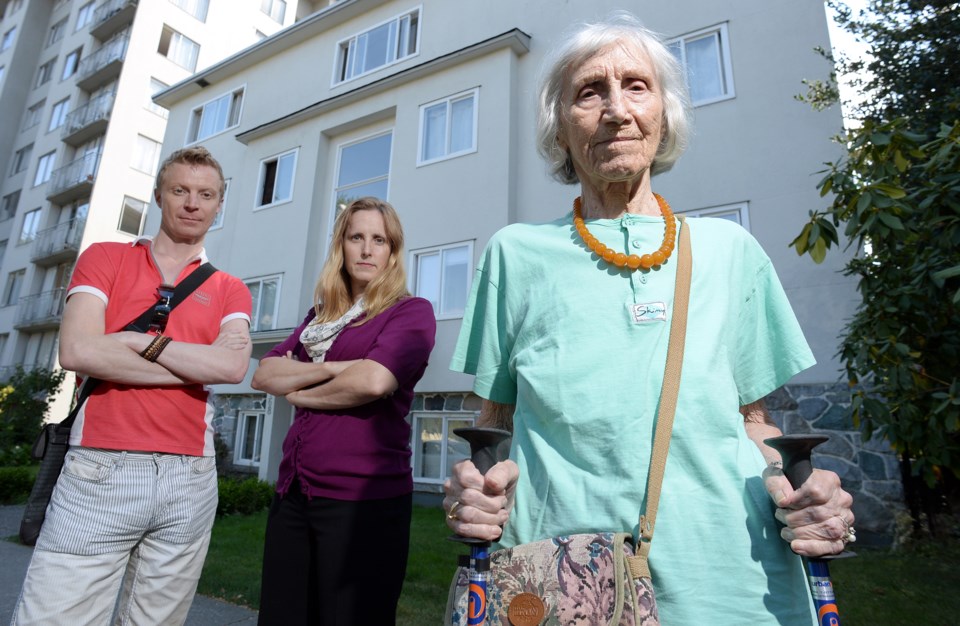While some seniors’ advocates worry about a rising number of evictions in the downtown area by landlords wanting to upgrade buildings (that is, “renovictions”), and have long called for a national affordable housing plan, there are still a few stopgap measures that can provide aid for seniors in the short term.
“Seniors in the West End are feeling extremely vulnerable about high housing costs,” said Sharon Isaak, seniors housing outreach coordinator for the Gordon Neighborhood House. “A lot of them are a month or two from being homeless. Many live on fixed incomes, and paying far more than 50 per cent of their money on housing.”
The homeless risk for seniors was confirmed in a Metro Vancouver study last March, where a total of 371 seniors (aged 55 and older) were counted as homeless, which is a 38 per cent increase over 2011 when 258 seniors were noted, and a 75 percent rise over 2008. Seniors made up 18 per cent of the total homeless numbers in 2014, a doubling of the nine per cent in 2008.
Mayor Gregor Robertson spent part of July explaining how his promise to end “street homelessness” by 2015 cannot be fulfilled without aid from senior levels of government.
Waiting lists for seniors’ social housing are long, homeless shelters such as Lookout are often strained by the needs, and some seniors have to resort to “couch surfing.”
Governments cannot even agree on who is a senior. Some services in the Downtown Eastside define seniors as those above 45, while the age limit is 55 for subsidized-housing applications to the B.C. government. Many other state subsidies, like Shelter Aid for Elderly Residents, only apply to people over 60.
Christien Kaaij, provincial project manager of the United Way’s Better at Home program, agrees with Isaak. “The problem of homeless seniors is getting worse, and more needs to be done,” she told the Courier. “Many seniors are just one or two cheques away from eviction.” For this reason, the program funds the Hollyburn Society on the North Shore to teach seniors social skills and prevent them from becoming homeless. The Society also has a planning table in the West End. (Call 604-987-8211.)
Another option is the Vancouver Rent Bank. This provides temporary interest-free loans to Vancouverites at risk of eviction, or who need to move due to unsafe housing conditions.
The loans cover past-due rent or utility bills, or the security deposit for a safer place. New York City has run a similar program for the past nine years. Last October, at the Vancouver program’s first year anniversary, managing director Amanda Pollicino said 137 loans had been granted, helping 228 people avoid eviction. (Call 604-566-9685 or see vancouver.ca.)
A further source of aid is the Housing Counselling and Homeless Outreach programs of the Seniors Services Society, which can send an outreach worker to seniors’ home to discuss their housing problems. (Call 604-520-6621 or see seniorsservicessociety.ca.)
Last May, a conference was held at Simon Fraser University’s downtown campus called Housing Alternatives for an Aging Population, where academics presented papers with many innovative models for senior housing.
“Metro Vancouver is experiencing an aging population at a time of rapidly rising market rents and little increase in fixed incomes,” warned professors at SFU’s Gerontology Research Centre.



